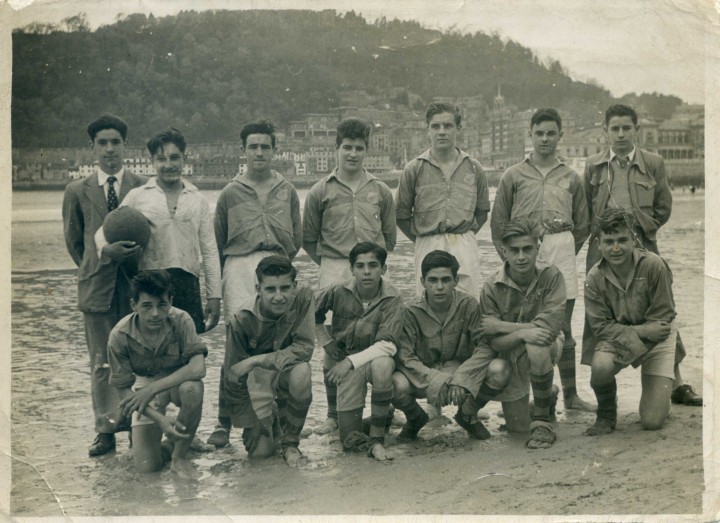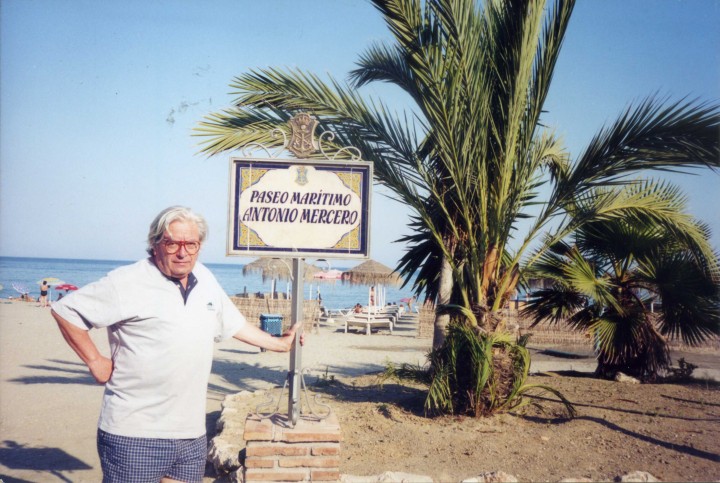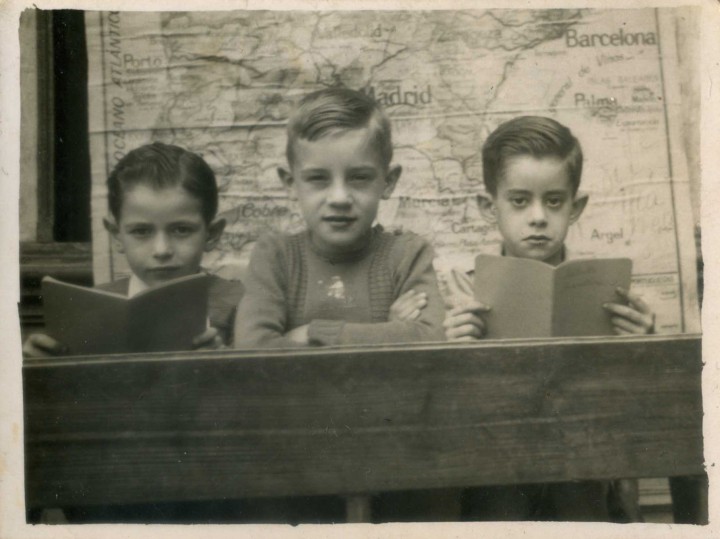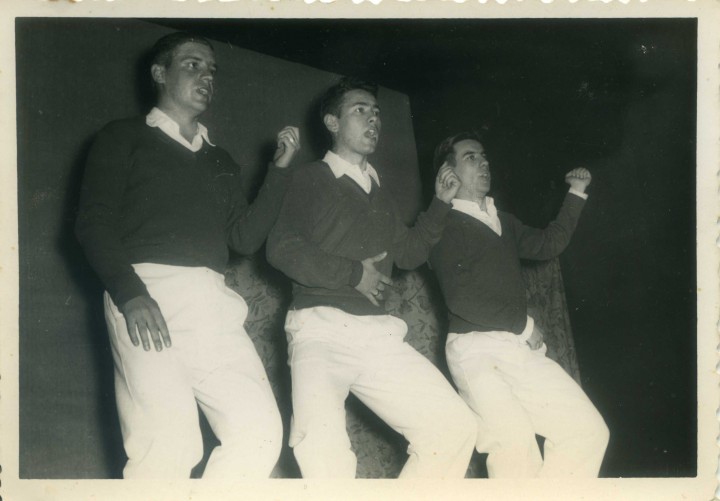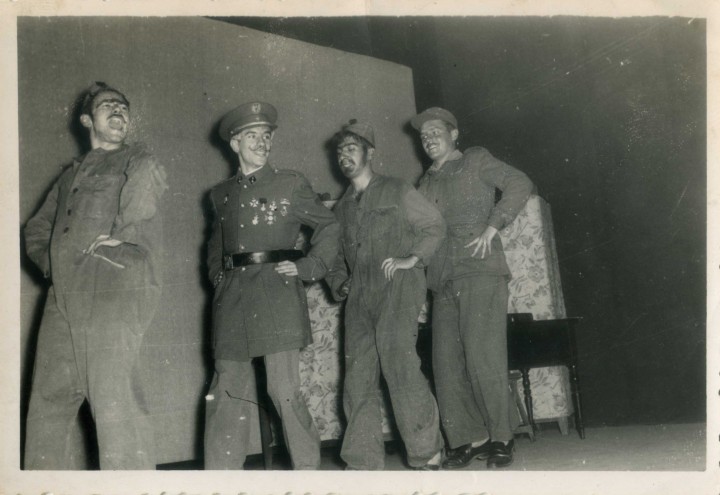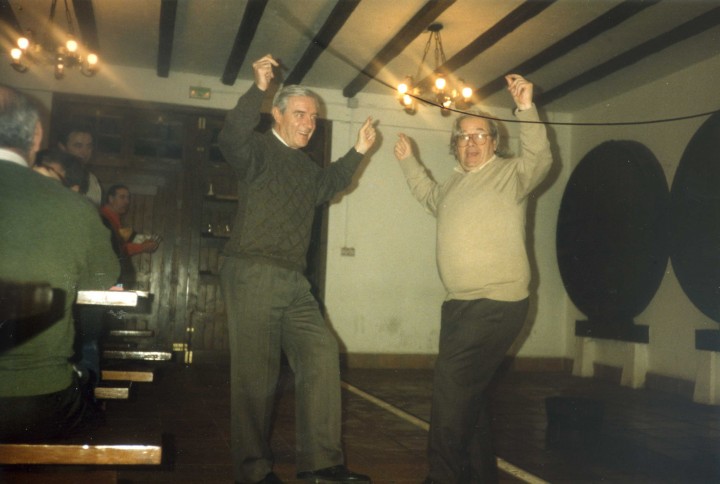Biography
Antonio Mercero Juldain, a director and scriptwriter from Lasarte, was born on 7 March 1936. Despite having earned a Degree in Law at Valladolid University in 1958, he immediately turned his sights to the world of cinema. In 1962 he became a film director at the Madrid Film School.
While studying at the Film School he made a number of short films and won a number of awards. Trotín Troteras (1962) was his graduation work and many critics hailed it as “the most outstanding work ever presented” at the school. In 1965 it received an award at the Paris Biennale. Three years earlier he had carried off the Golden Shell at the San Sebastian Film Festival for the short film Lección de arte (1962).
His move into feature films failed to enjoy the same success harvested with his short works. One obvious example is the film Se necesita chico (1963): despite its large budget, it had very little repercussion. He therefore started to direct his first works for television. RTVE offered him his first chance to work on the small screen. As mentioned by Mercero himself in an interview, “RTVE’s channel two opened the doors” to making films. However, the same medium that had given him wings also cut them back in certain cases. The episode on the town of La Quesada for the programme La fiesta (1968) was censored for a period of fifteen years, apparently due to not following the line dictated by the directors of the institution. By then he had done the odd work for the NO-DO broadcasts, all the while suffering a series of economic difficulties due to having no other work immediately after completing his studies. And also, because he was, generally speaking, rather critical of Franco’s government.
First sings of success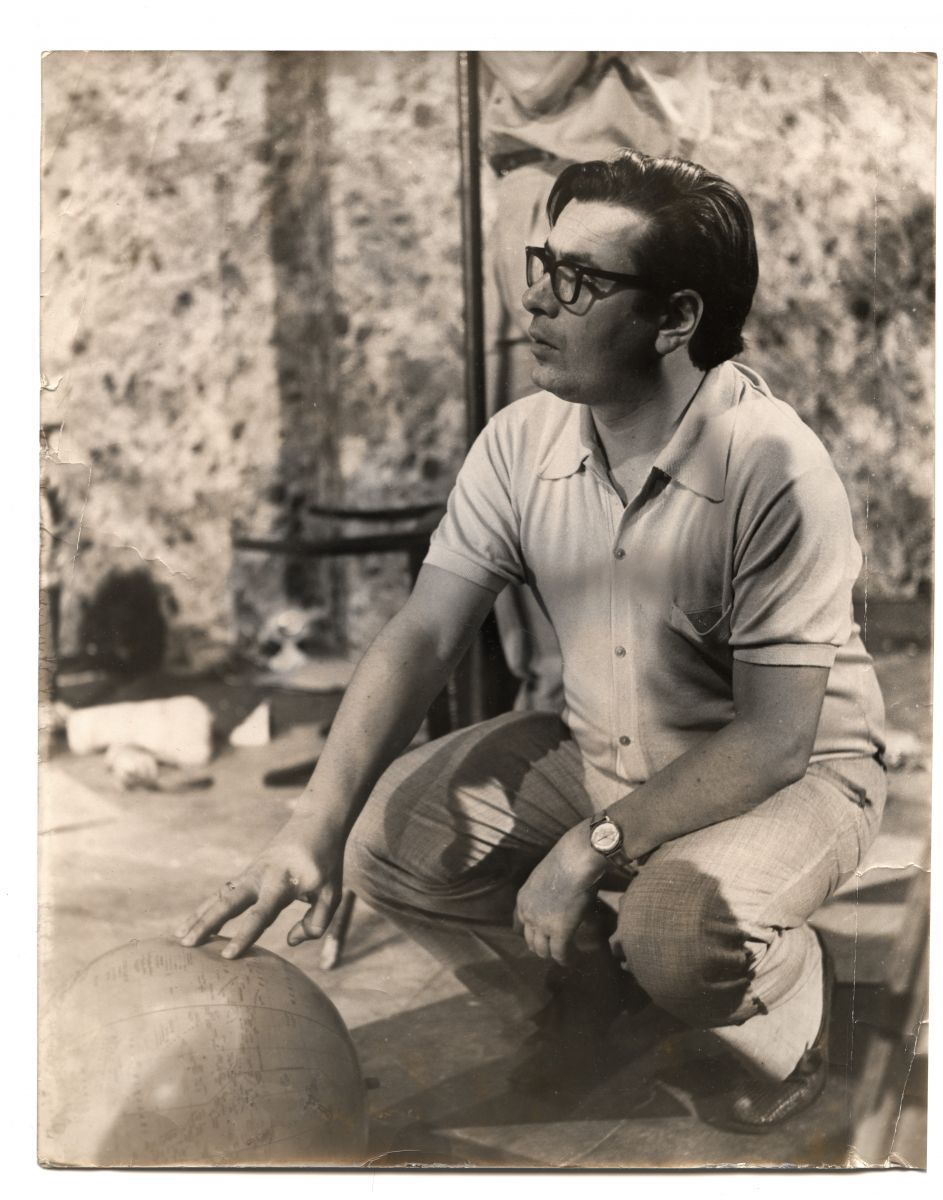
In the 1970 and 1980s, Spanish Public Television adopted an unusual approach towards content creation: it asked producers to make films for submission to international competitions. That’s how Mercero shot the film La cabina (The Telephone Box, 1972), in the early 1970s. This was one of the director’s best known works, having harvested dozens of awards in both Spain and abroad. The most noteworthy is the Emmy obtained in the United States of America.
Thanks to the works written and directed for television, he arrived at the peak of his career: we can say that Crónicas de un pueblo (1971), Verano azul (1980), Turno de oficio (1985) and Farmacia de guardia (1991) are among Antonio Mercero’s best works for the small screen. Except for Farmacia de guardia, the other three are shot in film format. In other words, Mercero adapted to television and to the new times without giving up on traditional cinema. We can see Mercero’s hand in all of the four works mentioned, since all share characteristics we can very easily identify: “In all of my works I have used three concepts: pain, love and humour. All of my works are the result of their combination. It’s a strange cocktail, I know, and often I’ve asked myself how I could mix elements potentially so different from one another. But, in practice, they have been landmarks in developing my creation”, said the director.
Despite having earned his success and fame thanks to the small screen, he was highly critical of television. He thought nothing of criticising his career, and had no qualms about repeating his assertions or upholding his ideas: “I was wrong when I said television is rubbish; it’s even worse than that”. He made those statements in 2003, in the newspaper ‘La Razón’ following the recent release of his film Planta cuarta (2003). He blamed the decline of television on directors and producers, and on more than one occasion asked those responsible to assume their responsibility. But as he himself admitted, “it’s very hard to change viewers’ habits”; just as it is to reverse the prevailing trends.
Focus behind the camera
He married in 1964 and had six children. The family is another important element in many of his works. While in the film La guerra de papá (1977) he reflected the image of a traditional family, in Farmacia de guardia the lead characters come from a family of separated parents. Far from a fixed and traditional model, Mercero always brought something of the avant garde to his works, generating all sorts of criticism and discrepancies.
Childhood holds equal importance to the family in Mercero’s films. His father was killed by an anarchist group when he was only six months old. With no siblings and the void left by his father, his mother, aunts, uncles and cousins became the bedrock of his life. While having no father conditioned his childhood, he would always say that he’d always been a happy and playful child. However, signs of nostalgia were also visible in works like Verano azul, Tobi or Farmacia de guardia.
In these works, he demonstrated great skill for working with children, receiving acclaim for his ability to create works suited to any age. The series Farmacia de guardia and Verano azul were avidly followed by a whole generation. The former enjoys the highest audience rates in the history of Spanish television. On the other hand, who doesn’t remember when Chanquete died? On seeing the pain inflicted on viewers, Mercero regretted having forever eliminated the charismatic character.
Accessible director
The actors who worked with Antonio Mercero highlight his special skill when it comes to shaping characters, when ‘relating with people’. The director would ask his actors and actresses to learn the script thoroughly, to pronounce the dialogues correctly and to concentrate on their work. He would endeavour to maintain a peaceful and relaxed tone, in the belief that healthy interpersonal communication was essential to working properly. That special relationship with his actors is perhaps related to his unfulfilled dream: he had always wanted to be an actor, even if he felt very much at home as a director and scriptwriter. In the short film Fray Gerundio de las campazas (1973), he had the opportunity to play a part; however, apparently that isolated experience failed to bring him complete satisfaction. He only directed one musical, Don Juan, mi querido fantasma (1989) and when asked about it in an interview, we can sense his sadness at not having worked more in world of theatre.
Antonio Mercero’s professional background has more high points than low. Apart from television, he directed films that saw cinemas pack to the hilt. Movies like La guerra de papá (1977), Espérame en el cielo (1987) and La hora de los valientes (1998) take a wider look at the Franco era. In the first, by giving the family power and authoritarianism to the father; in the second, by looking at the trials and tribulations of an ordinary man with a remarkable resemblance to Franco. And in the third, by showing the tricks and ploys used to protect the historical heritage from supporters of the coup in the early days of the Civil War. For the last of the three, he received the Special Jury Prize at the 21st edition of the Moscow International Film Festival.
The last dance
¿Y tú, quién eres? (2005) was Mercero’s last film. His last stint behind the camera. It focussed on Alzheimer’s, the disease which would accompany him until his death. Planta cuarta (2002) also constitutes the end of a cycle. The film critics used terms including “excellent, tremendously sensitive and all accompanied by large amounts of humour” to acclaim the work. These two films are works which address highly complex subjects: Alzheimer’s and cancer. Distanced from the pain involved in both diseases, Mercero addressed them from a more social and vital point of view. In the case of Planta cuarta he very skilfully adapted to cinema an idea taken from a play. And he demonstrated that same skill when directing ¿Y tú, quién eres? He lent voice to a pain he would later suffer in his own skin; apparently he already knew at that time that he had Alzheimer’s.
Antonio Mercero Juldain died on 12 May 2018. The intention with the Virtual Museum is to pay tribute to Mercero’s prolific professional life. We are, however, aware that it is impossible to condense a life as prolific as that of the director from Lasarte into a single a website. There’s nobody like those closest to him, his most fervent fans and the people of Lasarte to recall his legacy. This is for you Antxon!
We know who Mercero was, but who was Antxon?
Wishing to take a more personal look at the figure of Antonio Mercero, below we transcribe the words of his cousins Marilo Mercero and Ignacio Mercero.
Antontxo, ATU
Antxon always recalled his childhood fondly. His young days could have been worse, given that his father was killed by an anarchist group, and that following the fascist revolt of 1936 the family had to flee to Bizkaia. But they managed to get by, and he doesn’t have bad memories of that period.
They returned to their hometown at the end of the war. At that time Lasarte was a small town, with around a thousand inhabitants. The three cousins would spend their time playing and making up stories. In the film “Está lloviendo y te quiero”, which would never be shot, he tried to express the atmosphere of that time. “For me, the most important thing is to recover my childhood”, he would often repeat.
With his cousins Inaxio (Ignacio) and Joxean, he would spend hours sitting on the branches of fig trees, recreating characters: “I’m ATU, he would say”. One day, during a school outing, he began imitating a character and, seeing his schoolmates laugh, realised that he wanted to be a ‘showman’.
From then on the three cousins would put on shows: dance, song recitals and plays; at that time those kinds of shows were unusual in Lasarte. Inaxio laughs out loud as he recalls one time when Mercero went into the local shoe shop to buy tap dancing shoes, and the person behind the counter asked him: “Antxontxo, you’re not a poof are you?”
More than anything, Antxon was a creator; he would spend his day inventing things. Those closest to him say that “he would come up with convoluted stories simply to adorn something insignificant”. He loved to enjoy life and his loved ones: any excuse was good enough to sing, dance and laugh. “It’s a family thing,” say his cousins.
Basque language and simplicity
Antxon liked simple people: “he couldn’t stand arrogance”. That appears to be why he made his first film, “La hora de los valientes”, extoling the image of the anarchists in the Civil War. Once hearing that Carrero Blanco liked the programme “Crónicas de un pueblo”, he responded: “Well I’ve gone off it!”
He frequently demonstrated that simplicity. That special sensitive ability to build children’s worlds is proof of this.
At one stage he took to inviting his closest friends to wine and dine with him. One at a time, in all corners of Spain. He told them he’d just recovered from an illness and that he wanted to celebrate in style. It wasn’t true. He’d just been diagnosed with Alzheimer’s and wanted to say goodbye to his friends. And he didn’t want to miss anyone out.
Although he didn’t know how to speak Basque, he had a profound love for the language. Jose Inazio Ansorena, for example, remembered his fondness for the word “Ariyo”. He would put on the video of clowns Txirri, Mirri eta Txiribiton for his grandchildren in Madrid and, although he didn’t know Basque, he would sing all the songs!
By then badly affected by Alzheimer’s, in his last days, the cousins from Lasarte went to visit him in his home in Madrid. He asked them to sing songs in Basque and they sang for hours on end. He had forgotten almost everything, but not the songs of his beloved childhood.
Awards
Tambor de Oro
Goya of Honour from the Academy
Goya of Honour from the Academy in 2010.
Photos
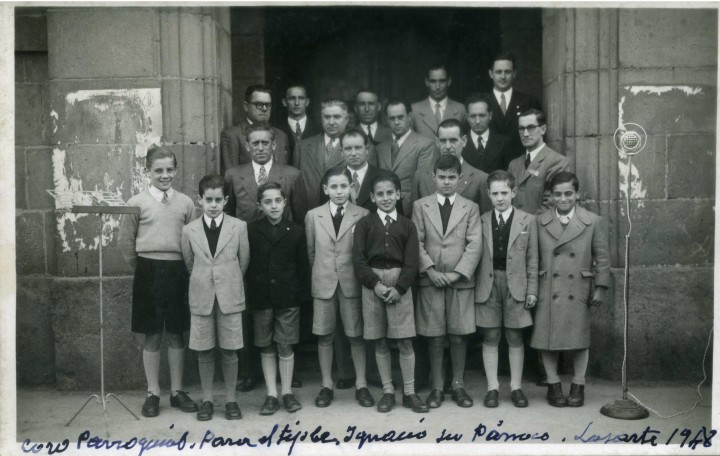
1948 - Antonio Mercero (first row, the fourth starting from the left) with the choir of the parish of Lasarte
Desconocido (Ignacio Mercero)
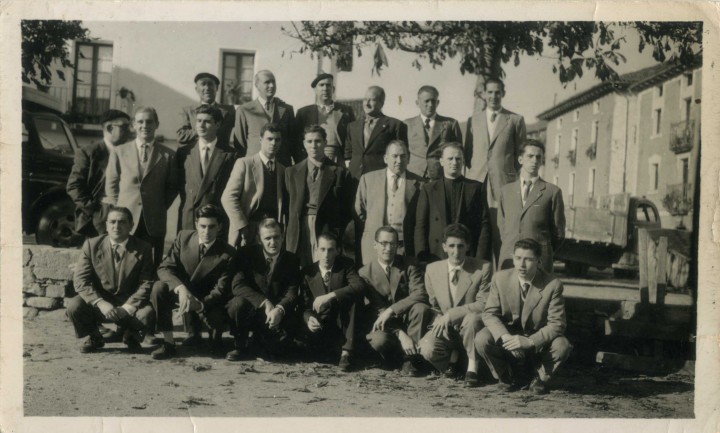
1953 - Antonio Mercero in Asteasu (Gipuzkoa): "Principio de una carrera de cómico y guionista"
Desconocido (Ignacio Mercero)
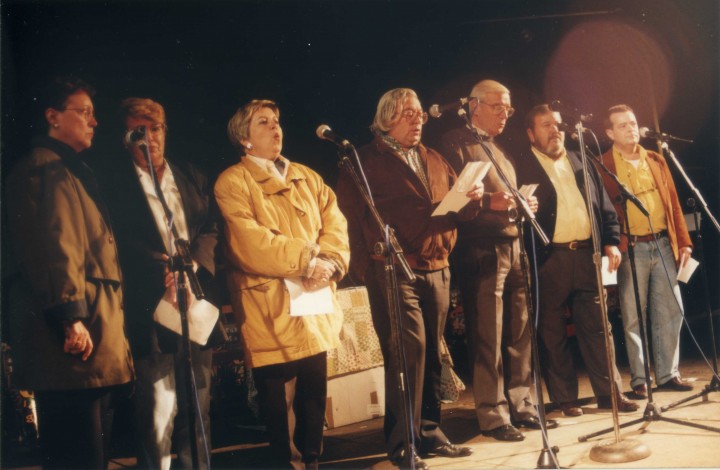
1996 - The Mercero family singing at the Marathon of Euskera in Lasarte
Desconocido (Ignacio Mercero, María Dolores Mercero)
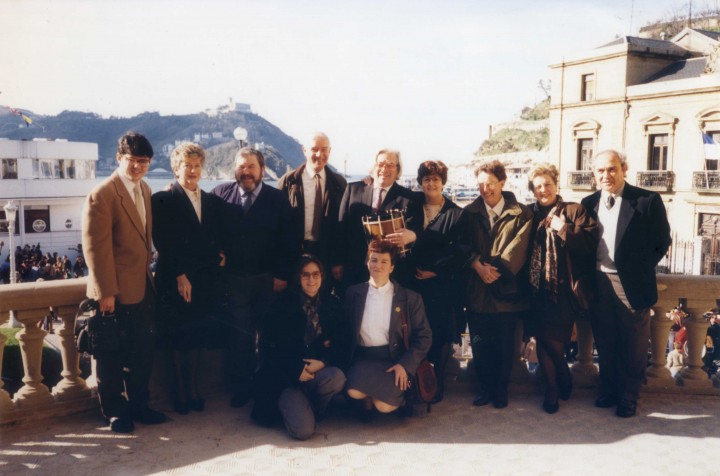
1996 - "Tambor de oro para Antton": the Mercero family after Antonio received the Golden Drum Award
Desconocido (Ignacio Mercero)
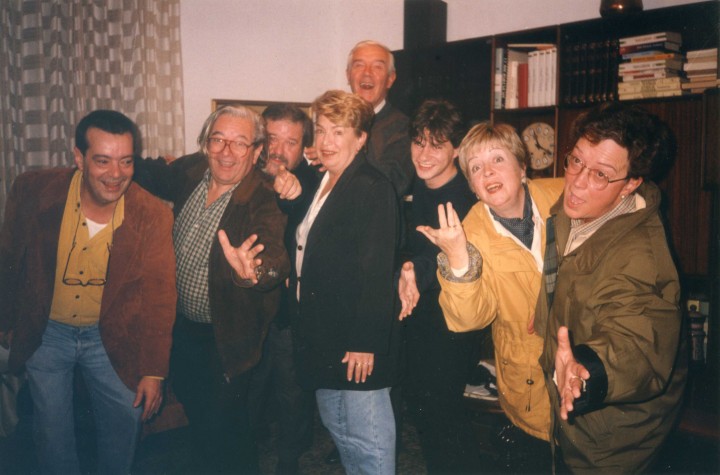
1996 - The Mercero family rehearsing at the Arrieta house, before singing at the Marathon of Euskera
Desconocido (María Dolores Mercero)
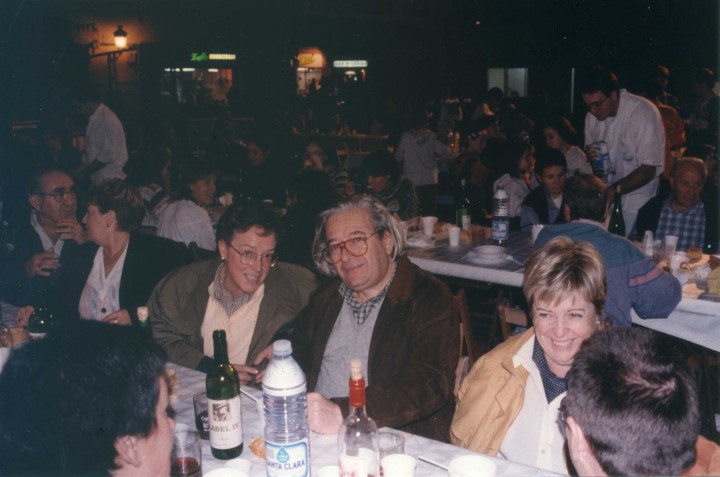
1996 - Antonio Mercero among friends and family, at the popular dinner of the Euskera Marathon (in Lasarte)
Desconocido (María Dolores Mercero)
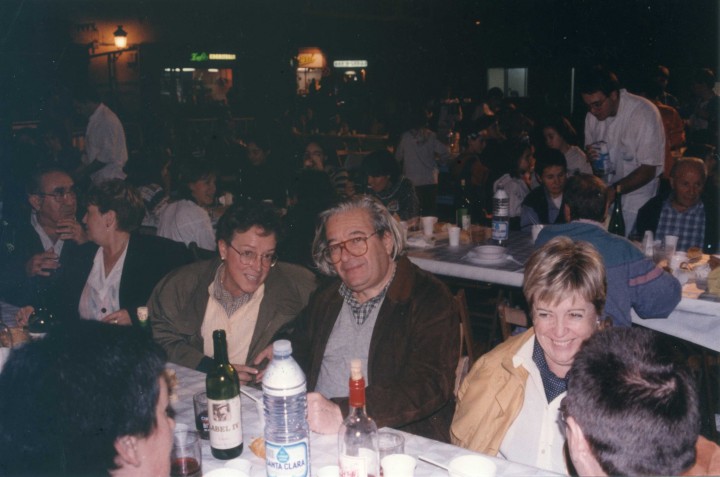
1996 - Antonio Mercero among friends and family, at the popular dinner of the Euskera Marathon (in Lasarte)
Desconocido (María Dolores Mercero)
Videos
2019 - Review of the life and work of Antonio Mercero (in Basque)
Ayuntamiento de Lasarte-Oria
Subtitles: Basque, Spanish, English and French
2019 - Review of the life and work of Antonio Mercero (in Spanish)
Ayuntamiento de Lasarte-Oria
Subtitles: Basque, Spanish, English and French

